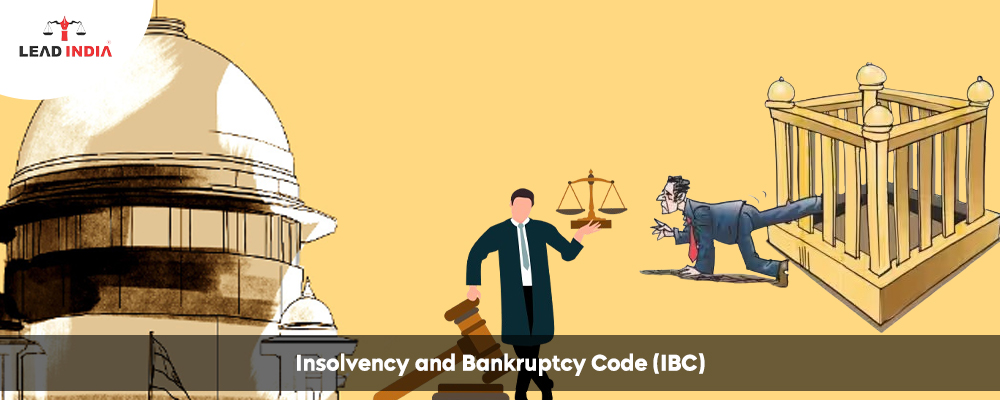Several laws, including the Indian Contract Act, the Recovery of Debts Due to Banks and Financial Institution Act of 1993, the Securitizations and Reconstruction of Financial Assets and Enforcement of Security Interest Act of 2002, and the Sick Industrial Companies (Special Provisions) Act of 1985 (SICA), were in place in India to penalize defaulters. The government chose to reform the current insolvency laws with more strict ones that would provide timely relief to current defaulters.
The goal of the proposed bankruptcy laws is to alleviate the problems that arise in the context of winding up and insolvency today. All entities other than financial service providers are covered by the Code’s provisions, which also apply to people, businesses, and limited liability corporations. A draft bill to establish a resolution corporation has been presented by the finance ministry in an attempt to address similar difficulties among financial organizations, following the passage of the Parliament’s bankruptcy code for the deadline-based resolution of insolvency proceedings involving non-financial companies
Need A Legal Advice
The internet is not a lawyer and neither are you. Talk to a real lawyer about your legal issue

Key Features
- Insolvency professionals and insolvency professional agencies are to be governed by the Bill. These organizations will create codes of conduct, and professional standards, and perform disciplinary actions under the Board’s direction. The positions of Liquidator, Final Resolution Professional, and Interim Resolution Professional are open to the following three groups of Resolution Professionals.
- The Code calls for the creation of information utilities that would gather, compile, authenticate, and distribute financial data from publicly traded firms as well as their operational and financial creditors. To provide information on a person’s insolvency status, it is also suggested that an individual insolvency database be established. It is uncertain how this will integrate with India’s already-existing Central Registry of Securitization Asset Reconstruction and Security Interest of India and/or Central Repository of Information on Large Credits, or if it will simply result in more registers being created in the country.
- Cases brought by or against the debtor will fall under the adjudicating authority’s purview. Except for limited liability partnerships, the adjudicating body having jurisdiction over people and partnership firms will be the Debt Recovery Tribunal. The Debt Recovery Appellate Tribunal will hear appeals against the DRT’s order.
- The grant of a moratorium, which will halt creditor action, is one of the Code’s most important provisions. The Adjudicating Authority must grant this on the Resolution Professional’s advice; it is not automatic.
- Any assets that the debtor possesses that are rightfully its own will be included in the liquidation estate. The liquidator will allocate assets based on the legally prescribed priorities. The liquidation process will involve individual claimants or those asserting any kind of special rights over the debtor’s assets.
Recent legislative amendments
After introducing the pre-packaged insolvency resolution process (PPIRP) for micro, small and medium-sized enterprises (MSMEs) as defined by the Micro, Small and Medium Enterprises Development Act 2006 through the Insolvency and Bankruptcy Code (Amendment) Ordinance 2021, which was promulgated in April 2021, the government enacted the Insolvency and Bankruptcy Code (Amendment) Act 2021 on August 12, 2021. This change was deemed important to assist MSMEs in coping with the widespread hardship brought on by or made worse by the epidemic.
The IBC has succeeded in achieving its goal, to the extent that any legislation is capable of doing so. In contrast to other regimes, the IBC has been effectively assimilated by the system. Better value realization by a variety of stakeholders has also been the outcome of the IBC as compared to SICA.
In addition to the courts refraining from rejecting the COC’s rulings (apart from a few sporadic stray orders), the administration has taken the initiative to make sure that issues are resolved. This is encouraging for global lenders and stakeholders since it shows that the IBC is resilient enough to handle changing circumstances.
Lead India provides free legal advice and online information among other legal services. We offer a platform where you can talk with a lawyer and ask legal questions. Lead India’s lawyers can help you with any legal matters. Lead India offers free online legal help in India. In addition to providing legal advice online, Lead India allows users to ask professionals questions for free.





 Talk to a Lawyer
Talk to a Lawyer